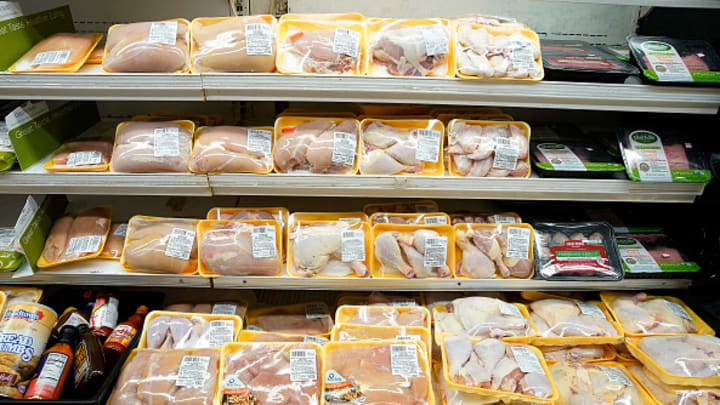Sometimes, USDA inspectors fail to catch a truckload of E. coli-tainted romaine lettuce, or a cook forgets to use separate utensils for handling raw poultry. These mistakes can inadvertently spread foodborne illness. The Centers for Disease Control and Prevention (CDC) estimates that roughly 37 million Americans are sickened annually from eating foods contaminated by 31 foodborne pathogens [PDF].
The signs and symptoms of food poisoning aren’t always obvious, though. So how can you know for sure? What are the causes? What about treatment? How long will it last?
Unpleasant Symptoms
Because vomiting, diarrhea, fever, and other unpleasantries are associated with a number of illnesses besides food poisoning, it helps to look at the timeline to examine what you’ve eaten in the past day or two to see if a specific meal may have been the culprit. “The details are the key to determine if someone has food poisoning,” says Dr. Jennifer Katz, attending physician at the department of gastroenterology at Montefiore Health System in New York. “What food was ingested, the time period between ingestion and onset of symptoms, the number of people who ingested the food and how many became ill, and the means of preparation and storage of the suspected food are a few of the key elements.”
Germs like norovirus, Salmonella, Clostridium perfringens, and Campylobacter can be transmitted to humans due to improper hand-washing, food that hasn’t been heated thoroughly to kill bacteria, food that was improperly stored, or unsanitary preparation surfaces. If you’re experiencing vomiting, frequent bowel movements, cramps, or neurological symptoms like dizziness, it likely stems from something you’ve ingested within the past one hour to three days. Undercooked poultry, beef, shellfish, eggs, flour, and raw vegetables are common culprits, though you can ingest illness-causing bacteria in a variety of other ways: from kids, from travel, from health care environments, or from contaminated surfaces. If it’s not from food, though, it’s not food poisoning.
So how long does it last? “Most foodborne illness is self-limited,” Katz says. Your body will typically win the bacterial battle in a few hours to a few days, at which point you’ll probably just suffer some residual fatigue and loss of appetite.
Hydration is Key
Drinking water is the best treatment. Avoid antiemetics or anti-diarrheal medication—they’ll actually slow down the body’s purging method for getting rid of the germs, potentially prolonging your symptoms. But if they don’t resolve within a few days, you might need the assistance of a physician. “One can consider seeking medical attention if they are immunocompromised, have fevers, bloody diarrhea, bloody vomiting, or are unable to tolerate any food or water,” Katz says. Children are more susceptible to getting dehydrated while vomiting and should be monitored closely.
Following a bout with food poisoning, Katz says you might be better off with low-fat meals to take it easy on your stomach. In the majority of cases, the illness will cause no lingering effects, save for an aversion to whatever it is that made you ill in the first place.
In short? If you don’t feel well and suspect a meal you’ve had in the past day or three was improperly prepared or stored, it’s likely food poisoning is the cause. Rest up, hydrate, and you’ll be back to normal in no time.
Have you got a Big Question you'd like us to answer? If so, let us know by emailing us at bigquestions@mentalfloss.com.
Discover More Health Questions and Answers:
A version of this story was published in 2018; it has been updated for 2025.
